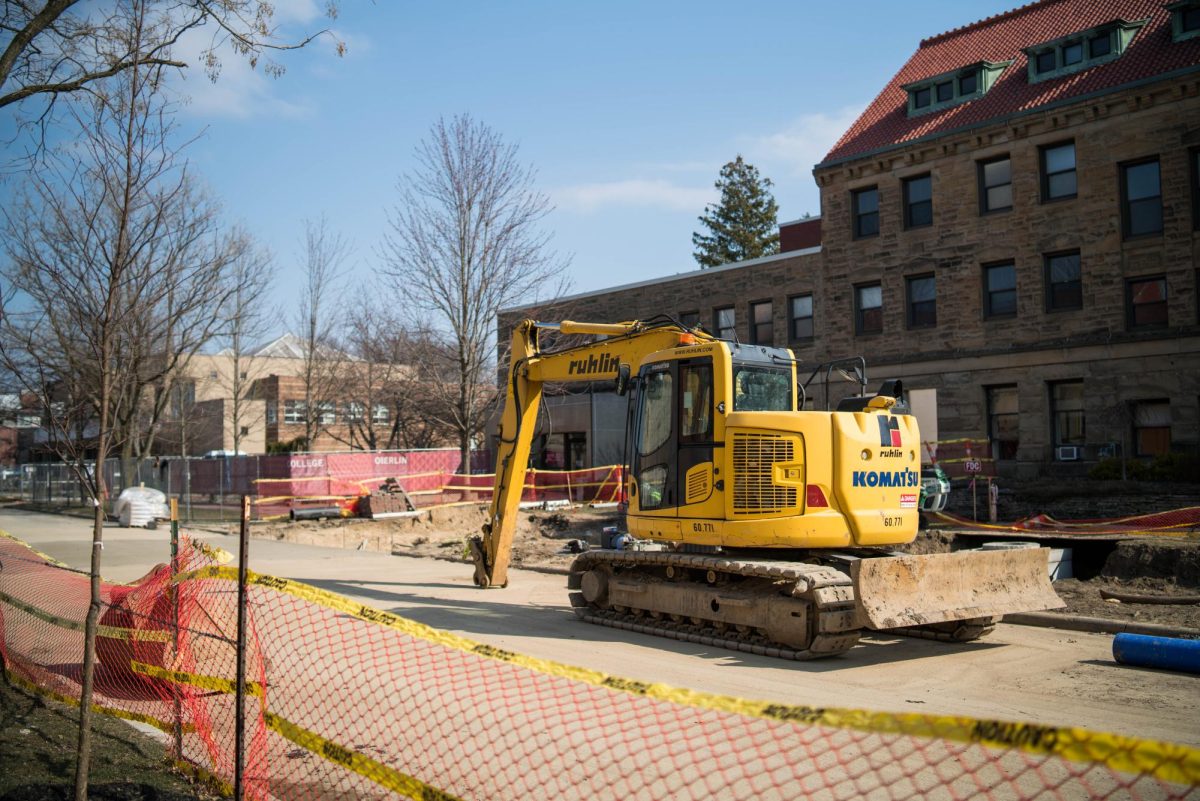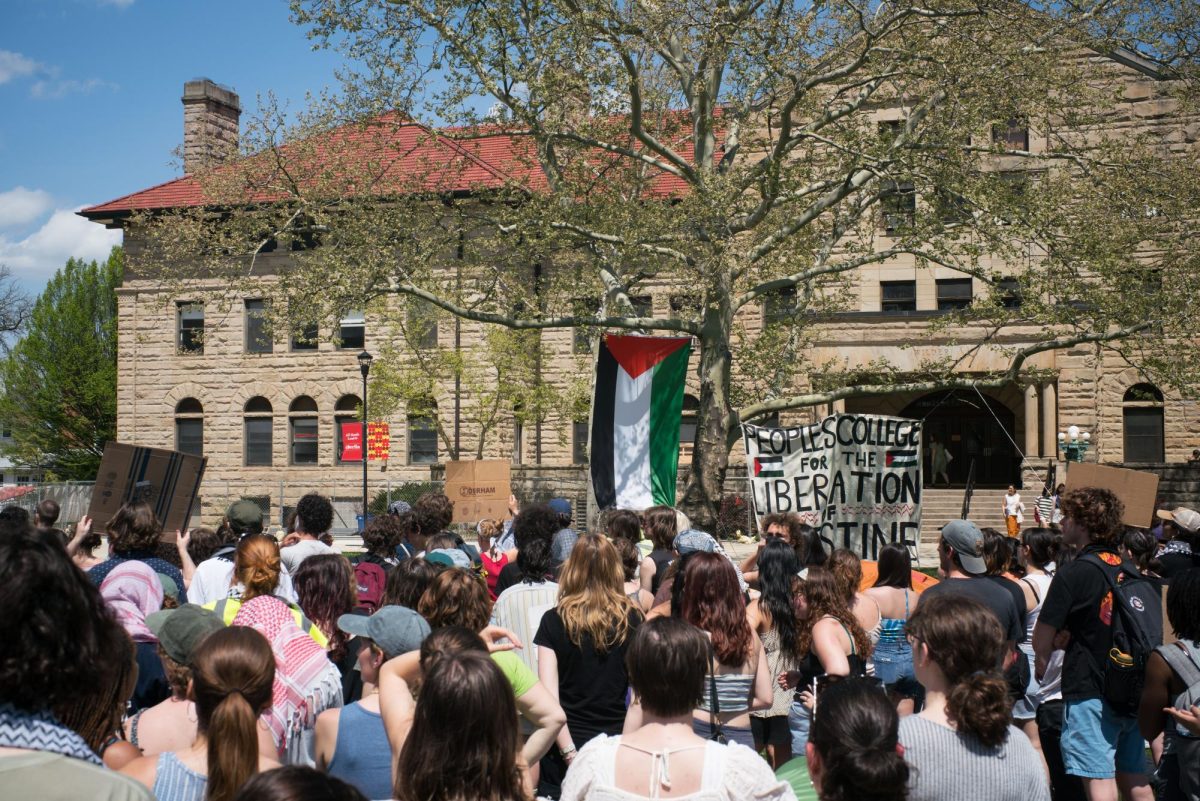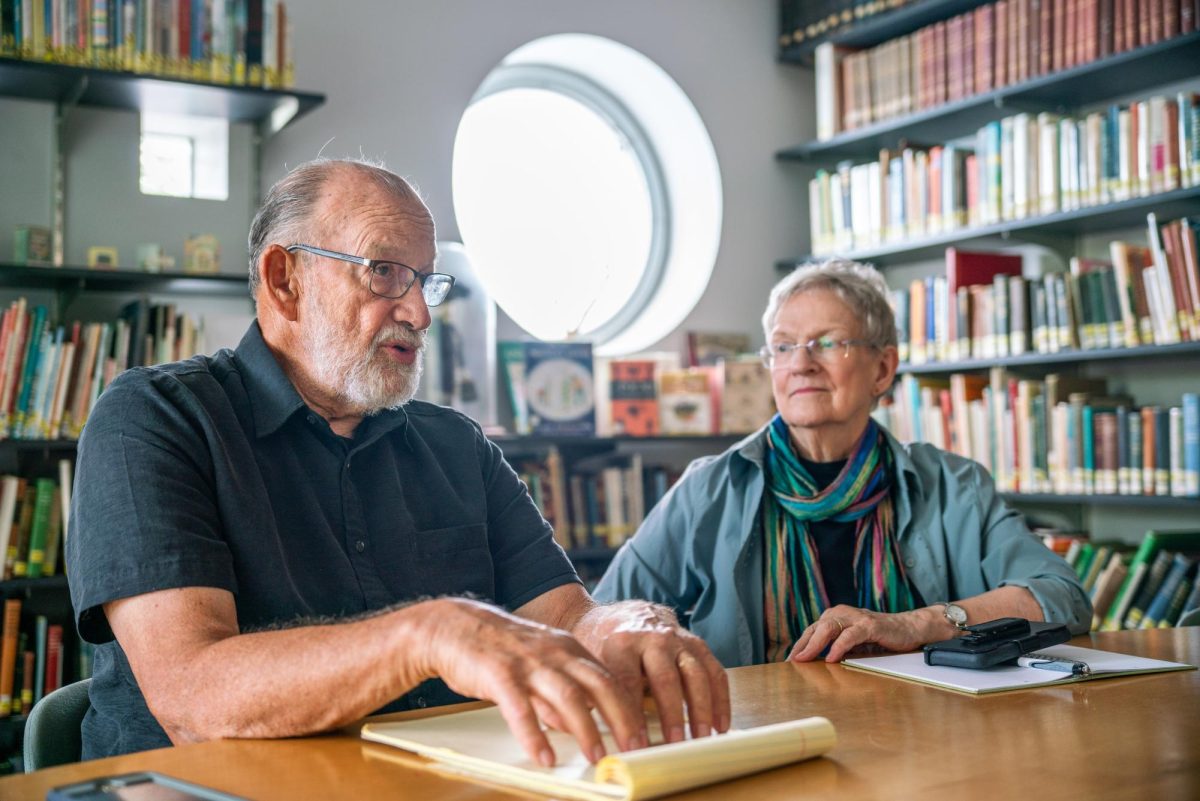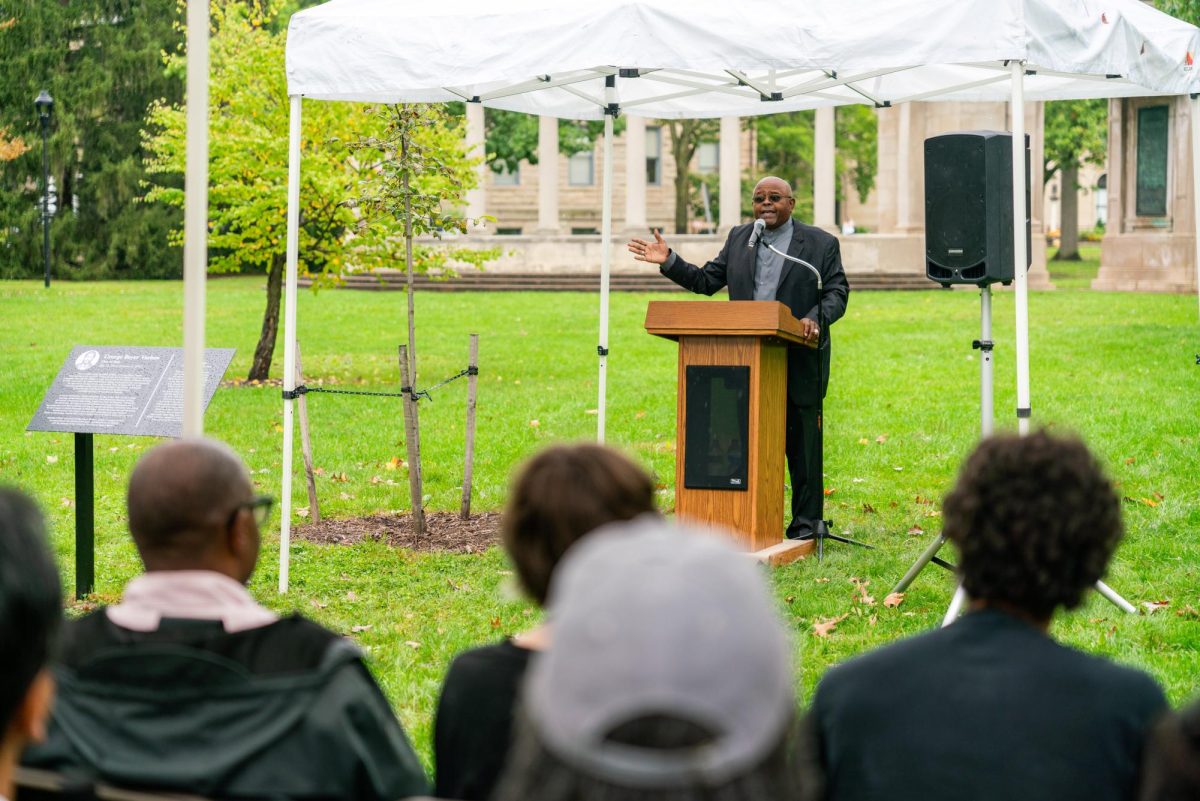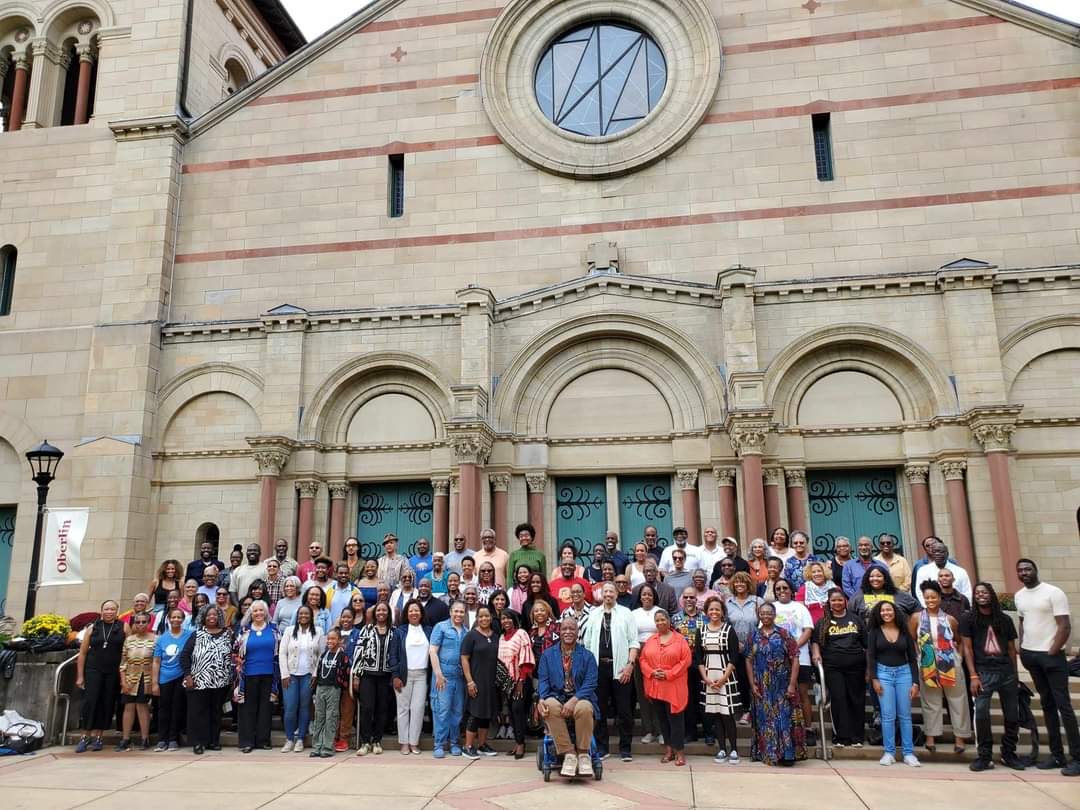Renovations to implement a new, eco-friendly geothermal energy system in campus buildings and construction of a new residential hall are continuing on North Campus.
The geothermal conversion project is a crucial part of the Sustainable Infrastructure Program, which seeks to replace the fossil fuel-based heating system with a network of underground pipes distributing energy by circulating hot and chilled water. In a written statement on behalf of the team behind the construction, Director of Media Relations Andrea Simakis explained that the change is part of Oberlin’s commitment to reach carbon neutrality by 2025.
“Renovations to existing buildings and new construction will allow us to link campus facilities to our new geothermal energy system, a foundational part of Oberlin’s delivery on its 2006 pledge to become carbon neutral by 2025,” Simakis wrote. “The new system will reduce most of our greenhouse gas emissions related to campus energy use, a lasting achievement for the College.”
Construction work on other buildings, including the Allen Memorial Art Museum, will continue over the summer to minimize the impact on students.
According to Simakis, this is the final year of construction for the SIP, with most of the visible construction work set to be completed by fall 2024 and the North Campus practice fields’ soil and grass restored by fall 2025.
The construction of the new residence hall, which will house 400 students beginning fall of 2025, is also ongoing. The project prioritizes sustainability by using modern modular construction methods, where pieces of the building are fabricated off-site and then installed on campus.
“It’s a super energy-efficient process to make them offsite and bring them here,” Senior Director of Energy and Sustainability Chris Norman said. “It’s the first time we’ve ever done it like that.”
The new residence hall will be built to Leadership in Energy and Environmental Design Gold certification, a system set by the U.S. Green Building Council to promote sustainability and carbon neutrality in building design and construction. Additionally, the hall will be built using the new geothermal system. When the project is completed and students can be housed in the building, it will allow for other residence halls to be emptied for periods of renovation.
The teams behind the construction, including the Office of Sustainability, are aware that the continued noise, obstructions, and mud created by the construction can be annoying and inconvenient for students.
“The overall message is: hang in there!” Norman said. “Thank you to our students. … it’s really all of us working together in a way that’s going to impact the campus for the next 100 years, to do this in a way that is climate-responsible.”


